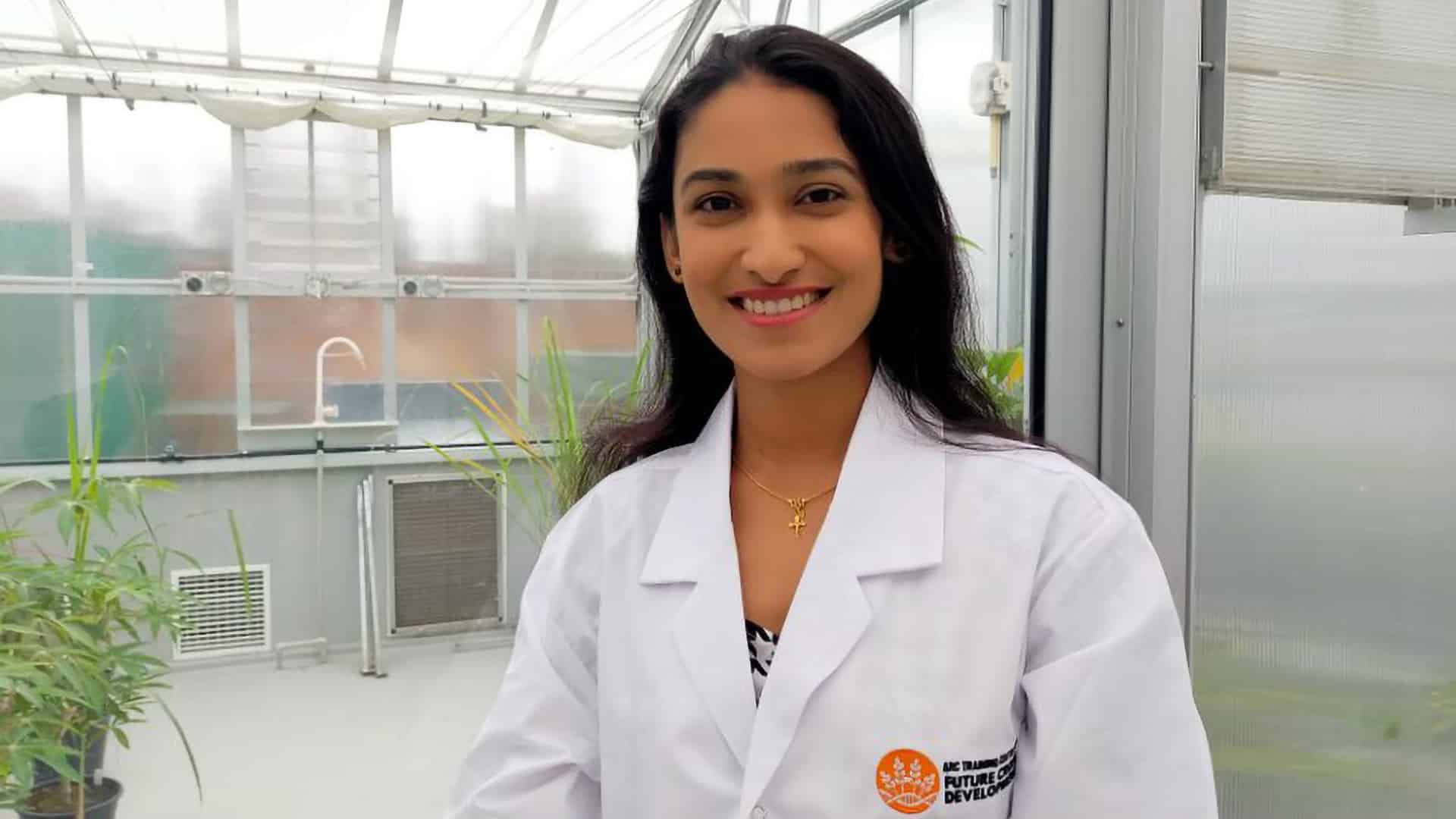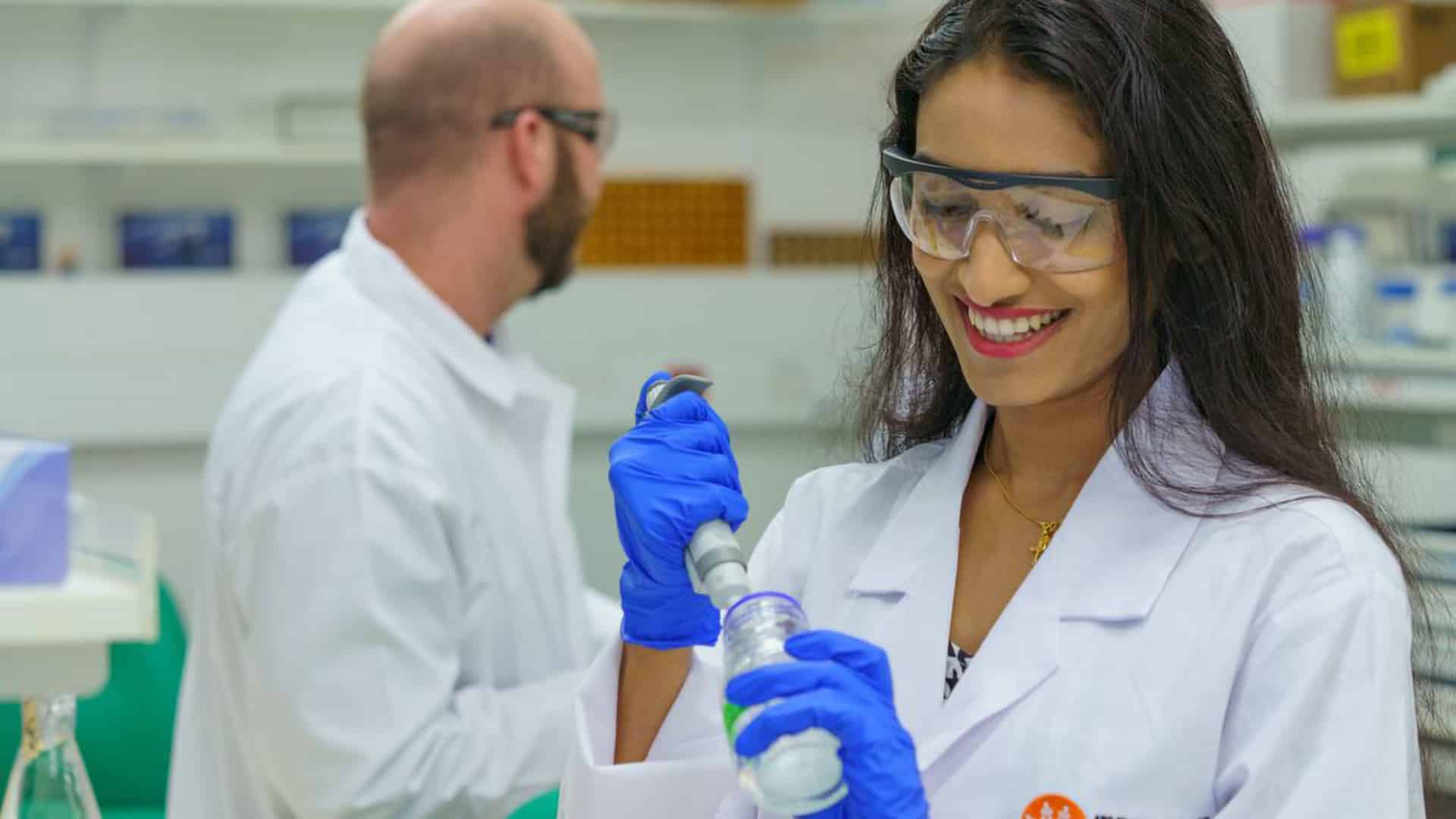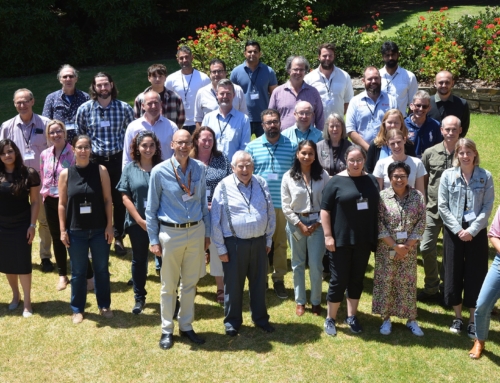Traditional PhD training in crop science is getting an overhaul with the establishment of the new ARC Training Centre for Future Crops Development. The Centre will train a new generation of researchers and leaders to build new capabilities for agriculture and APPF is excited to be one of the Centre partners.
Dr Richard Poiré, who is the key point of contact for students at the APPF ANU node, says APPF will offer practical support in managing plant growth, utilising remote sensing and hyperspectral imaging, and collecting and analysing data.
“This Centre will help create a network of people who understand plant phenomics and establish important links between industry, academia and students and we are very pleased to welcome our first PhD candidate under the partnership, Reshma Roy.”
An ANU Division of Plant Sciences student, Reshma is in the initial stages of planning her PhD project.
“My initial project plan is to focus on the transformation of Brassica carinata crops,” she says.
“We are currently reviewing technologies such as genomics and transformation, to compare their effectiveness at gene identification, modification and expression. Our ultimate aim is to look for traits with industry relevance, such as improving oil quality through increasing the fatty acid component, and then helping establish the development pipeline through to industry.”
Training Centre CEO Lauren DuFall says the opportunity to rethink how PhD students are trained and supported is exciting.
“Our focus is on creating leaders who not only deliver quality science, but can navigate the relevant regulatory, legal and social environments,” she says.
“We will include training in social licence, communication, regulatory systems, IP and legal considerations through this program. There will also be a strong emphasis on mentoring that sees the PhD candidates linked with industry.
“Linking with industry is important for learning to ensure project design considers how research and technology will be used, adopted and implemented.
“It also builds relationships and pathways for future partnership and career opportunities.”
Dr DuFall says the goal is to train the next generation of researchers, policy-makers and industry leaders who will collectively build a community of practice that drives innovation, growth and competitiveness in the crop agri-tech sector.
The Centre will offer around 25 PhD positions per year, with topics focussed on plant transformation, gene editing, remote sensing, hyper spectral imaging, phenotyping, computer science and diversity arrays.
The program is funded by the Australian Research Council under its Industrial Transformation Training Hubs Program to run from 2022 to 2027. It is a collaboration of universities, government research agencies, the APPF as a national research infrastructure and the Australian grains sector’s key stakeholders in training, R&D, social engagement, responsible innovation, breeding, marketing and delivery. It also has international partners in gene-editing, synthetic biology, crop breeding, and for the co-development of deep technologies to transform the agriculture industry.
Partners include:
- Universities
- Australian National University
- University of Adelaide
- Research Partners
- Cluster of Excellence on Plant Sciences
- CSIRO
- Department of Primary Industries – NSW
- John Innes Centre, UK
- National Institute of Agricultural Botany (NIAB), UK
- South Australian Research and Development Institute (SARDI)
- Australian Plant Phenomics Facility (NCRIS research infrastructure)
- Industry Partners
- Advanta Seeds Pty Ltd
- Australian Crop Breeders Ltd
- Australian Grain Technologies Pty Ltd
- Australian Seed Federation Ltd
- Bioplatforms Australia Ltd
- Diversity Arrays Technology Pty Ltd
- Grain Trade Australia Ltd
- Grains Research and Development Corporation
- InterGrain Pty Ltd
- KWS UK Ltd
- Longreach Plant Breeders Management Pty Ltd
- Nuseed Pty Ltd







